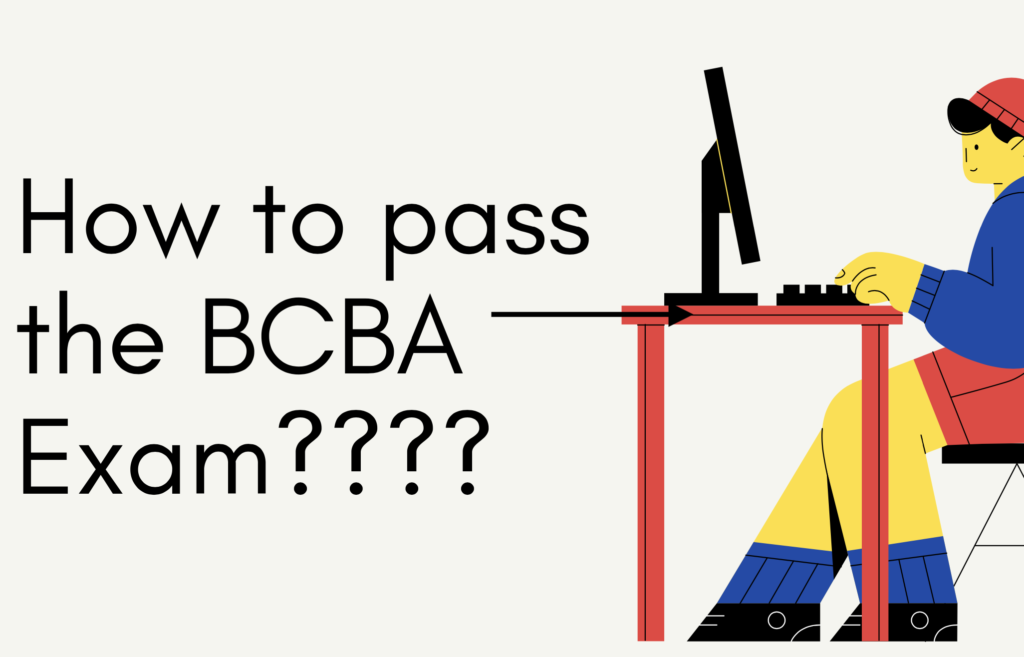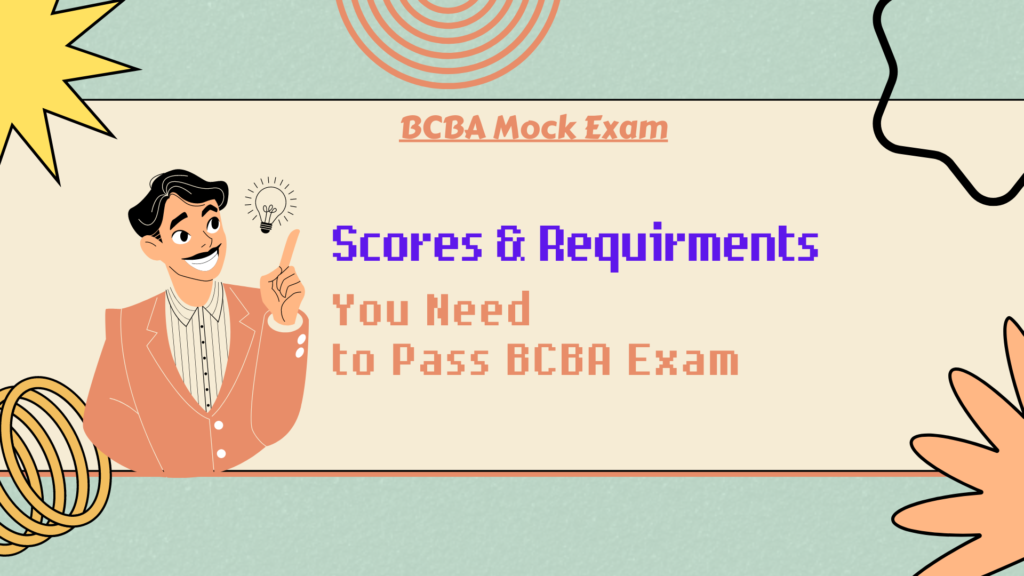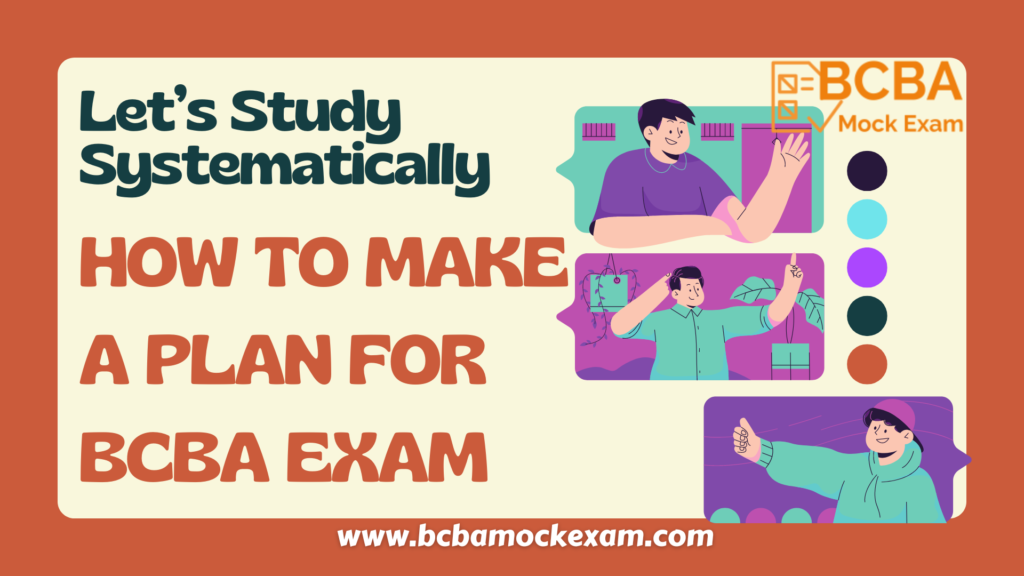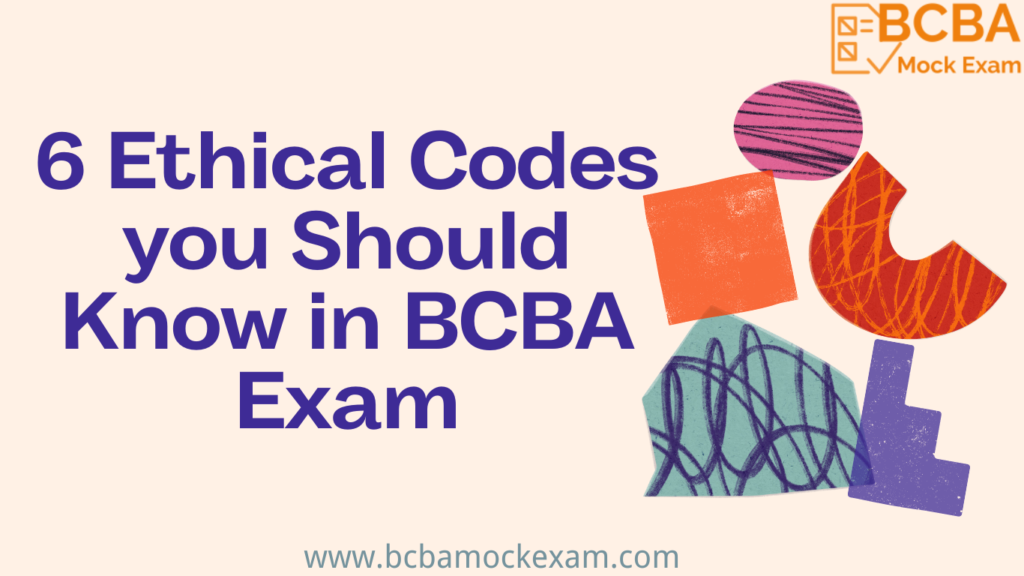Six Tips to Learn How to Pass BCBA Exam
1. Set the contingencies
Not only are you setting contingencies for yourself, but you are setting contingencies for everybody in your life. If this happens, then this is going to have your spouse, your children, your supervisor, your boss, everyone else you interact with daily, including anybody who may potentially be a distraction, will need to know what your goals are. As a result, you must establish those expectations and contingencies.
If I’m waiting, I’ll study, is one condition you may establish for yourself. Consider how many times during the day you could possibly be waiting. For example, if you are at the DMV and must wait for 20 minutes, you can study. If you are in line at the grocery store and must wait for five minutes, you can study. You must plan this out ahead of time. Anytime that you anticipate a wait in your day whether it’s 15 minutes, 30 minutes, or an hour, is the time to pick up your book, turn on your devices, or study. If you do not have four hours set up to study, which is recommended to pass the BCBA exam, you can chunk it out, use your fragmented time whatever it is 15 minutes or 30 minutes.
If you are a mom, there is another contingency you can set for your family: create a clear signal to prevent interruption. You must create a SD to tell your family members when mom is available and when she is not. They won’t annoy you if you have a clear signal that everyone follows.
2. Make studying effortless
To make studying more accessible or lower the amount of work required to learn.
We are naturally conditioned to avoid anything that involves a lot of effort. We will tend towards something that demands less labor if it just requires too much. Why not make studying as simple as possible by lowering the reaction effort required to get access to resources or study?
If you plan on studying while at the library, one thing you may do is pack your study bag the night before, bring anything you need, bring snacks, and reserve a study room. If you’re studying at home, you plan on sitting in this one spot for three hours. Prepare everything you need. Because the more time you spend getting something, the less time you have with studying. You should have easy access to all your study resources.
3. Use BCBA Mock Exam
BCBA Mock Exam will be your contingency manager. BCBA Mock Exams are harder than the real test. BCBA Mock Exam will collect information on your progress, including what you ‘re doing well, what you’re doing poorly, and what you should focus on. It includes positive reinforcement, as well as cues , which will be sent to your email after you finish the exam.
4. Check with Cooper
Cooper’s book is usually a good place to start. You should always check it. It can validate or add validity to what you just read in the BDS mark. You read the Cooper book and understand what it is with examples. After that, you return to the BDS modules. Return to that section and try to take that question again.
5. Build Fluency
Flashcards can be created to help you build fluency. You may have a term on the front, and the definition on the back. However, there is another factor to consider: speed. Fluency is defined as accuracy and speed. You may complete 50 segments in less than a minute or 30 seconds.
6. Teach the World about ABA





